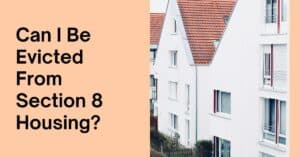Property management relies on fair housing to provide all applicants equal chances. It promotes diversity by prohibiting race, color, religion, sex, national origin, handicap, and family status discrimination. Property managers promote fair housing while meeting regulatory requirements.
In this blog, we will explore the importance of fair housing in property management and the role that property managers play in upholding these practices.
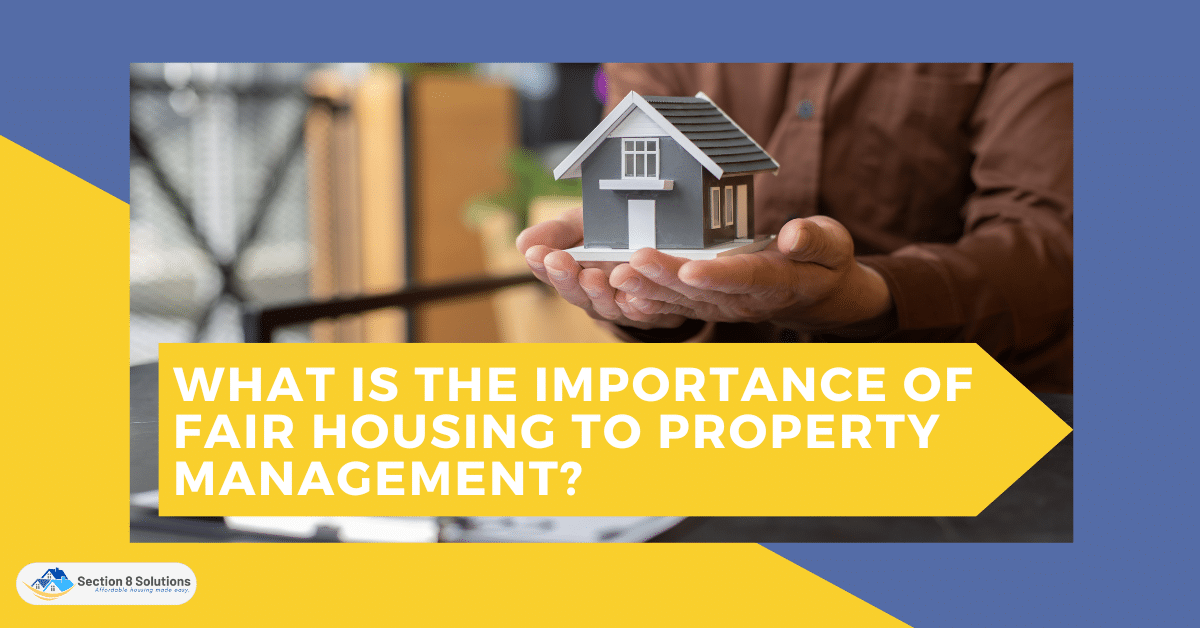
Legal Obligations and Penalties
Property management requires fair housing laws. Property managers must know the rules and regulations to avoid harsh fines. In this part, we will discuss fair housing laws, fines for infractions, and current cases to offer context.
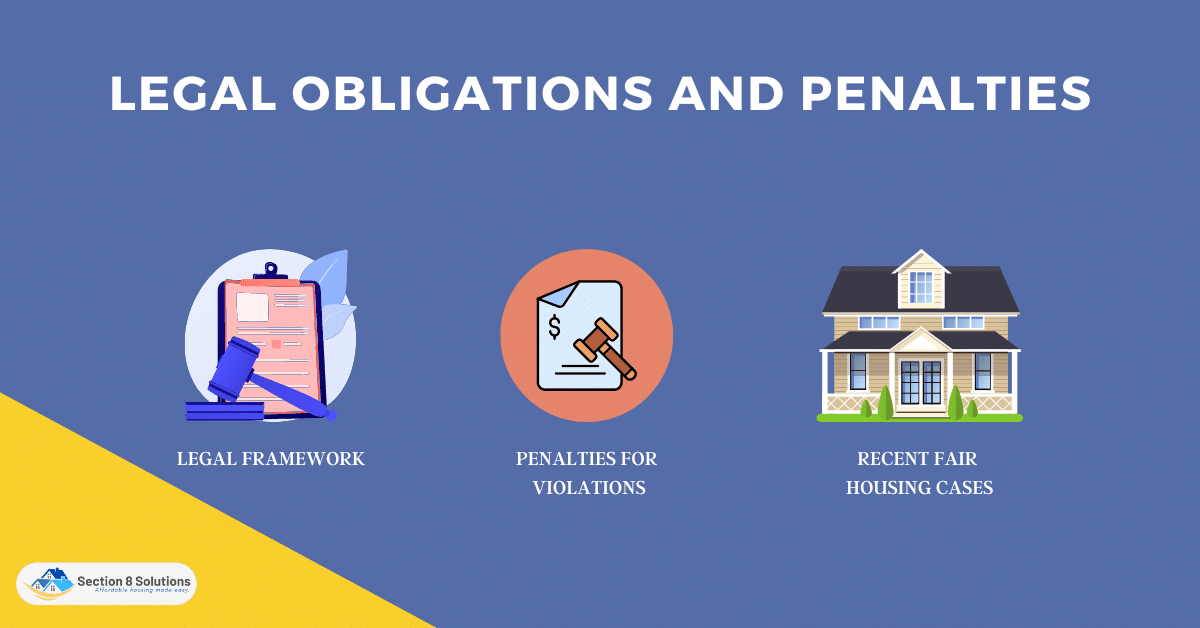
1. Legal Framework
Fair housing practices are primarily regulated by federal and state laws. At the federal level, the Fair Housing Act (FHA) is a key piece of legislation that prohibits discrimination in housing based on race, color, religion, sex, national origin, disability, and familial status. Additionally, state and local laws may extend these protections and add additional protected classes, such as sexual orientation or gender identity.
2. Penalties for Violations
Violating fair housing laws can result in severe penalties. Property managers who engage in discriminatory practices may face fines, lawsuits, and loss of licenses. The exact penalties vary depending on the jurisdiction and the severity of the violation. For example, the U.S. Department of Housing and Urban Development (HUD) can impose substantial fines for FHA violations, with amounts reaching tens or even hundreds of thousands of dollars.

3. Recent Fair Housing Cases
Recent fair housing lawsuits show the repercussions of non-compliance. In 2021, a California property management business was fined $3.1 million for discriminating against families with children by enforcing unduly stringent occupancy regulations. Another Florida landlord was fined $15,000 for discriminating against foreign-born tenants.
These examples highlight the significance of fair housing compliance and the substantial financial implications that can arise from violations. Property managers must stay updated on recent cases and legal developments to ensure they are aware of the potential risks and consequences of non-compliance.

Promoting Inclusivity and Diversity
Fair housing practices play a vital role in fostering inclusive and diverse communities. In this section, we will explore how these practices promote inclusivity and diversity, with a particular focus on accommodating individuals with disabilities.
Inclusivity and Diversity
Fair housing practices create an environment where individuals from various backgrounds, ethnicities, religions, and cultures have equal access to housing opportunities. Property managers foster inclusive communities by encouraging equitable housing. Inclusive communities are more vibrant, tolerant, and enriched with diverse perspectives and experiences.
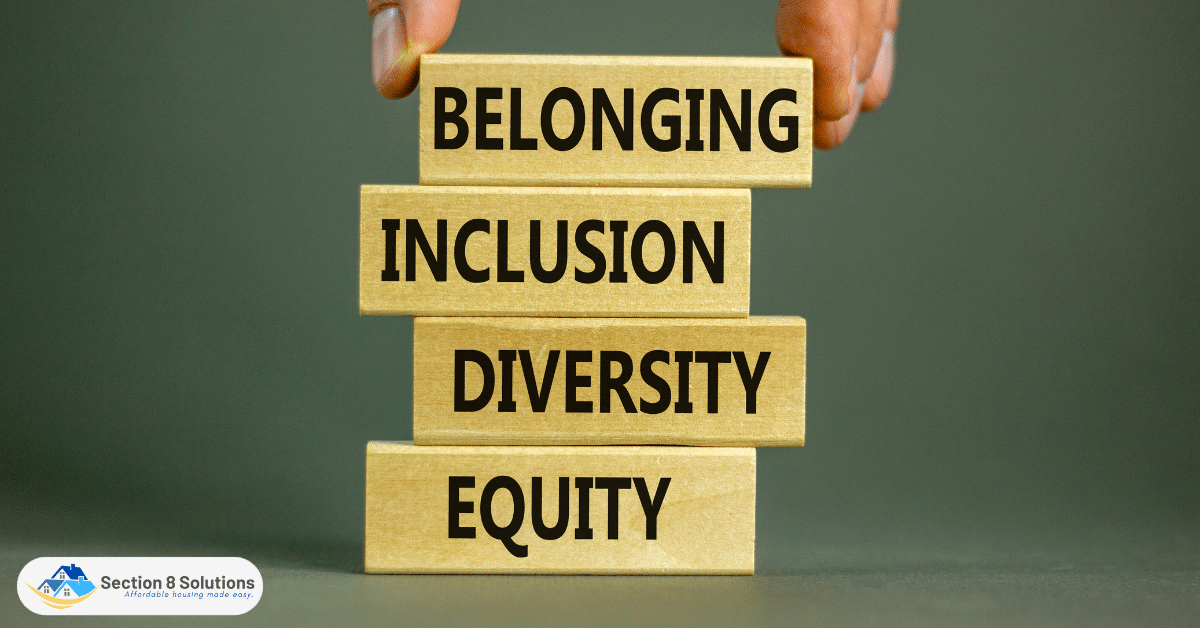
Accommodating Individuals with Disabilities
Fair housing must accommodate disabled people. Property managers must provide adequate accommodations for disabled tenants. Modifications may include structural alterations, but reasonable accommodations may include ramps, wider entrances, or assistance animals.
Disability accommodations go beyond legal requirements. It gives disabled persons shelter, equal opportunity, and full social participation. Property managers create an inclusive atmosphere by offering appropriate accommodations.

Preventing Discrimination
Fair housing rules prevent discrimination and provide fair housing access. These rules prohibit race, color, religion, sex, national origin, handicap, and family status discrimination. certain restrictions prohibit property managers from denying housing, discriminating, or establishing unequal terms or circumstances based on certain protected traits. Race-based housing discrimination and disability-based rental conditions are banned.
Discrimination harms people and communities. Discrimination fosters societal inequality and limits individual success. Housing discrimination may cause segregation, restricted access to attractive communities and facilities, and unequal resource distribution. Such methods divide communities, destroy trust, and hinder cohesiveness.
Discrimination also harms others. Discrimination breeds fear, marginalization, and unfairness, which harms communities. Discrimination divides communities, slowing social development and preventing inclusive, equal living situations.

Ensuring Equal Opportunities
Fair housing ensures fair housing possibilities for everybody. Fair housing laws remove obstacles to housing access by forbidding discrimination based on protected characteristics such as race, color, religion, sex, national origin, handicap, and family status. Equality promotes social equity, diversity, and housing market justice and fairness.
Fair Housing promotes equality. Housing management must remove bias. Advertising must not exclude protected groups. Transparent, fair, and nondiscriminatory application processes should evaluate individuals’ qualifications and housing suitability. Leasing managers must be fair.
Property managers can ensure equality. First, they may review their adverts for inclusivity and diversity. Use diverse pictures and language to attract a wide range of tenants. Second, property managers may eliminate prejudice by screening and selecting tenants objectively. Third, disability accommodations matter. The legislation may require property upgrades or service animal accommodations.

Fair Housing Training and Education
Property managers and personnel need fair housing training. These programs teach fair housing legislation, inclusion, respect, and non-discrimination. Let’s discuss why property managers and personnel need fair housing training and education.
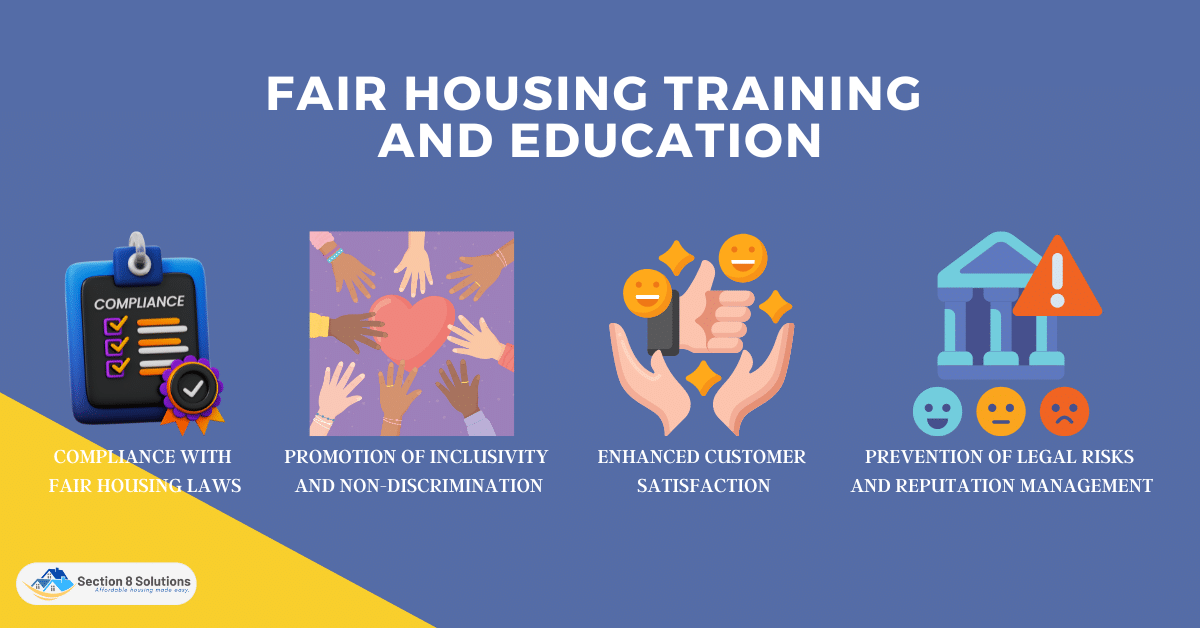
- Compliance with Fair Housing Laws: Complex fair housing regulations change often. Property managers and personnel must know these requirements to comply. Fair housing training teaches students about protected classes, discrimination, and legal duties.
- Promotion of Inclusivity and Non-Discrimination: Fair housing training and education foster a non-discriminatory property management culture. These programs teach property managers and workers to treat everyone equally, regardless of race, color, religion, sex, national origin, handicap, or family status. They learn to identify unconscious biases, appreciate diversity, and build an inclusive atmosphere for renters.
- Enhanced Customer Satisfaction: Property managers must provide excellent service. Fair housing training helps them communicate with various renters. They learn about cultural differences, communication methods, and family requirements.
- Prevention of Legal Risks and Reputation Management: Fair housing violations may lead to penalties, litigation, and a property manager’s reputation. Fair housing training helps property managers and workers recognize and prevent prejudice.
Finally, property managers and employees need fair housing training. They encourage inclusion, non-discrimination, fair housing, consumer happiness, and legal risk mitigation. Property managers may protect their professional image and long-term profitability by investing in comprehensive training programs to provide a safe, friendly, and inclusive workplace for renters.
Conclusion
In conclusion, this article has explored the key aspects of fair housing practices in property management. We have discussed the legal framework, penalties for violations, the promotion of inclusivity and diversity, the prevention of discrimination, ensuring equal opportunities, and the benefits of fair housing training and education.
Fair housing practices are of utmost importance in property management as they ensure equal access to housing opportunities for all individuals. By adhering to fair housing laws, property managers contribute to the creation of inclusive and harmonious communities where diversity is embraced.



